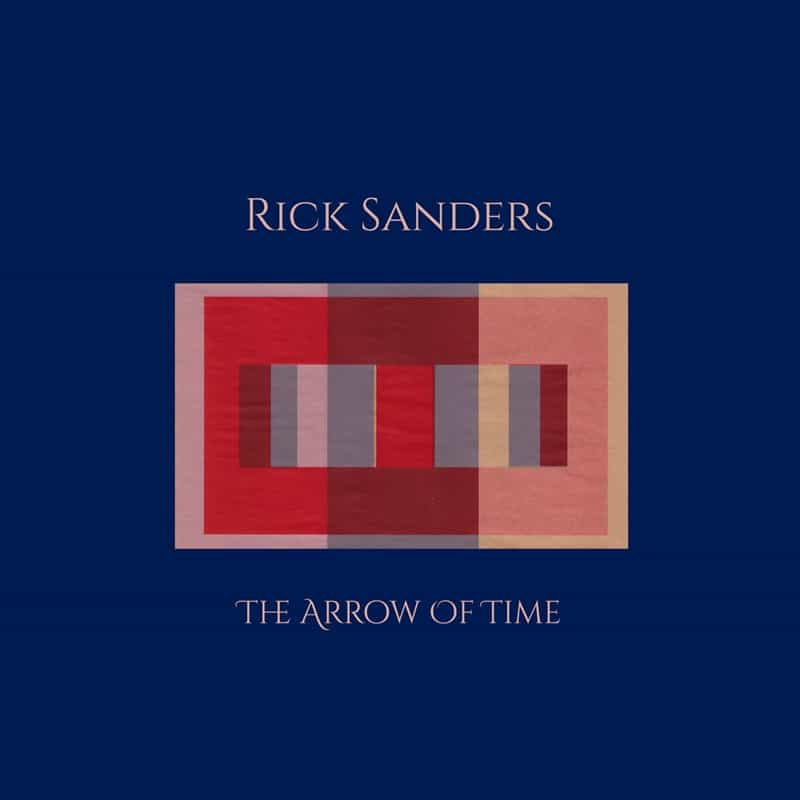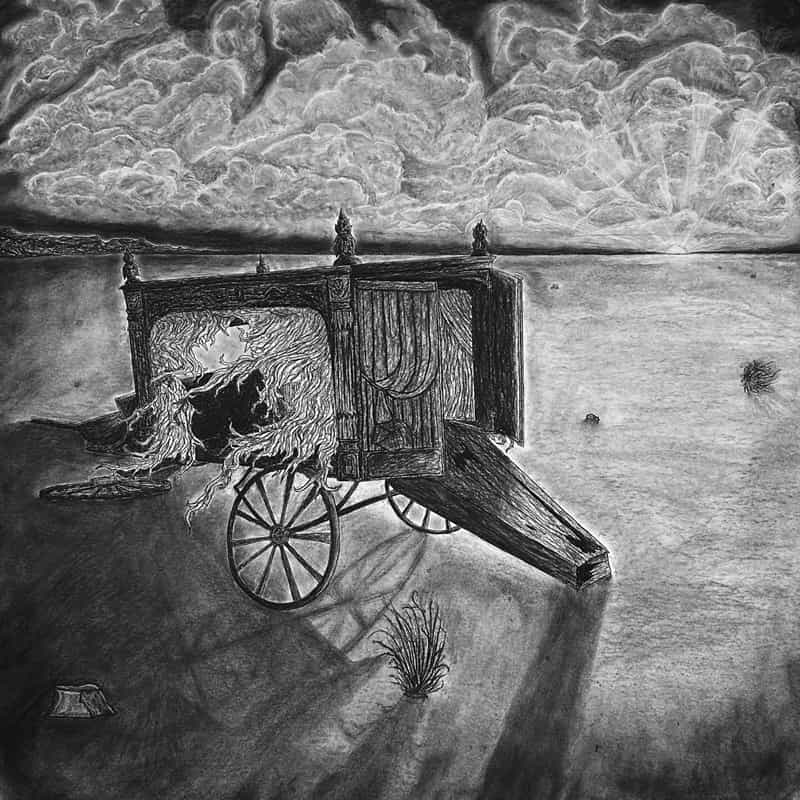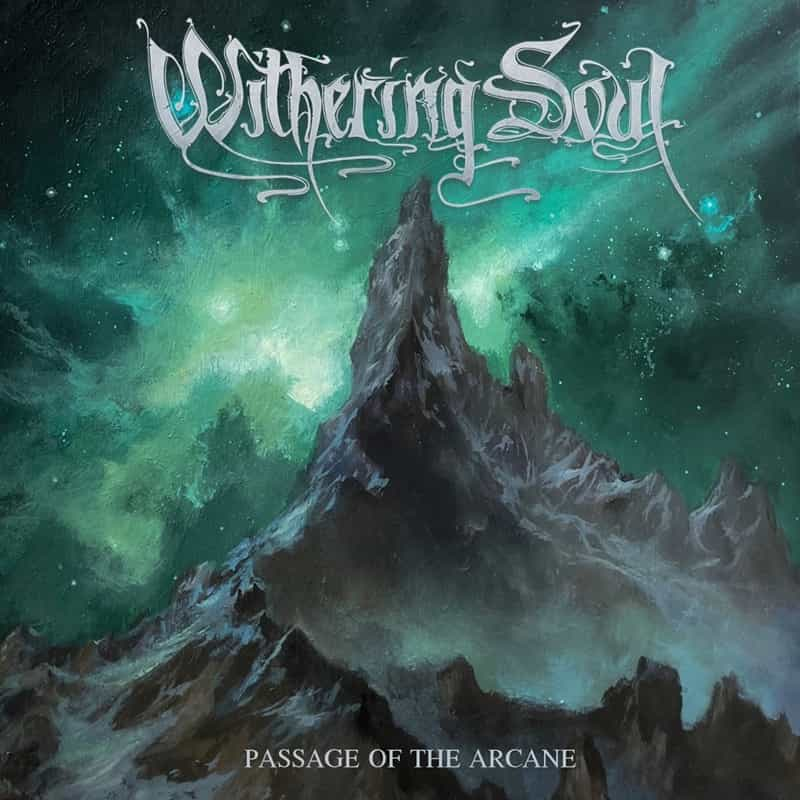Grief (Nyctophilia) #Interview

Grief (Nyctophilia) #Interview by Ioana
Greetings, and thank you for joining us once again. It appears that a new chapter of Nyctophilia is upon us, marked by the release of Stargazer. What can you say about the overall concept and direction of the album? As far as I can tell, there has been a rather stark evolution…
Hi, first of all thank you for taking your time to do this interview and reviewing my album. The initial plan for this album was to basically step away of what I had done previously. “Weltschmerz” marked the end of a specific “era” for me, so the general idea for this album was to create something that still sounded like Nyctophilia but present it in a new way.
Conceptually I also wanted to move away from the depressive themes and typical atmospheric approach, I wanted to create something more frantic more engaging, more raw sounding. This album is definitely a different one as it changes the narrative a bit. I knew for it to still be Nyctophilia but fresh and progressing in terms of musicality i had to change the approach and theme of the album to let myself roam more freely in what I think was the right direction.
Yes and no, I mean the first draft of the album I had when I started writing process was a bit more in line with what I had done previously, but I was unhappy with this direction and the more ideas started to form and the final destination was becoming clearer I realised that I just can’t repeat what I had done on previous albums. I needed something more, something more complex, something that draws from more then just one narrow minded perspective and vision. I started experimenting with more complex synth sounds (the synths on this album took me ages to figure out) and guitar sound. Each album I did has a sort off specific riffing but I always followed same principle, for “StarGazer” I wanted to make riffs that i never thought about before and make them work in my style, you could say the whole decision to make the album more complex and push it beyond of what I had done previously formed as the album was beginning to take actual shape but the plan was always there since I started it, it was the execution that had to change.
From the album artwork alone, one can tell that Stargazer was bound to be much more expansive and ambitious in both themes and execution, featuring grander soundscapes, more complex song structures and everything in-between. Was it a conscious decision to push the limits of the project with this record, or was that something that evolved organically during the songwriting process?
Yes, lyrics are another part of the album that I knew had to change, like I mentioned earlier I wanted to step away from the more depressive themes, a lot has happened in those years I was making this album and I also think I reached a point in Nyctophilia were I explored that side of it quite enough through lyrics and different sounds, at least for now. Previous albums were more about the contemplation of darkness and nature, more philosophical.
“StarGazer” is the conqueror of darkness and nature and wielder, harnessing raw energy of it so in short yes that quote summarises the theme of the album quite well.
More onto the album cover… the artwork featured is titled Momentum and it is the work of the artist Malaise, a fitting yet perhaps a little surprising choice considering your preference for romantic-era landscapes up until this point. What is the story behind this piece? Perhaps another indicator of the previously mentioned shift?
Yes definitely, I always have and still do admire those romantic era landscape paintings, but as the whole album was shaping I realised that I just won’t be able to portray the right feeling through that sort of painting and romantic era paintings just don’t posses this rawness. Once I had worked out the sound of the album and the general feel of it, I knew it needs very specific artwork that will reflect the feel of the album, that’s why I chose to have this sort of artwork for it. I think the title of the artwork also reflects this album very well, the whole album relentlessly pushes you towards darkness, the deeper you go the more dark and dehumanised it gets, to finish off in a complete void of space.

The quote that has come to be most prominently associated with Stargazer is “Behold, for I am the conqueror!/ Can you sense the power surging within me?”, a striking choice considering the more introspective mood that dominated the previous records. What does it say about the album as a whole, and can it be considered a sort of thematic landmark for it?
On the musical side of thigs, as I have stated previously, you have greatly expanded upon the magnitude of the sound and compositions. Was that a result of the longer time frame in which composing took place? Was there anything else that facilitated this shift?
I think the time frame definitely helped as I had much more time to reflect on certain aspects of the album, but I also gave myself much more freedom when it came to composing, like I mentioned earlier I wanted to come up with a certain composition scheme that would still sound like Nyctophilia but vastly improve on the actual musicality of the project so I allowed myself to be surprised and try things I hadn’t done before and which maybe, I was afraid to try. I am a purist when it comes to sound as well, so to get the sound I have in my head and transfer it into the mix can take ages and if it’s not right I’ll never be happy with it and this time I really wanted to take sound of the record to next level, maybe not in terms of the actual quality of sound but the way everything works together.
Theme wise, Stargazer leans more heavily on the already present, yet much subtler occult side of things, with titles such as “Ascension Through Black Flames” reflecting that. What inspired you to go on and explore such themes more profoundly? And if you could sum up this side of the album in one sentence or phrase, which one would it be?
It was basically the need to change the general themes and direction of my music. You know there’s only so much someone can write about depression and his inner darkness, and while “StarGazer” still explores these things and feelings it does it in a completely different way while introducing something new and like I mentioned earlier I think this “era” has been completed in Nyctophilia and I explored it enough for now.
I’ll say what my friend has said to me when I played the album to him for the first time because it describes the album the way I wanted it to feel “it’s like an invisible ancient being pulls you constantly deeper towards chaos, but chaos with meaning”
Despite this shift, or perhaps because of it, the primordial themes of Nyctophilia, nature and death have found themselves even more strongly embedded in the foundation of the record. What is the main difference between how you chose to go about these themes on previous works, compared to Stargazer? To what extent does the occult aspect of the album affect these themes, and how do they interact?
That’s an interesting question, you know it just seems I’m not able to escape this but on all my previous records death and nature have been my PRIMARY focus, explored through lyrics, sound of the record and general atmosphere of it like you said they were quite introspective, “Stargazer” shifted all this and while I still focus on death, nature and darkness of existence it’s done more indirectly, you are put outside of the world and mind. That’s were the occult aspects of the record come in and by implementing these I was able to explore nature and death from different perspectives, it all interacts with each other like I mentioned in our previous interview I find nature and death to be the most interesting and connected things on this planet so naturally my music will always explore these themes but from different angles. You know it was my intention as soon as I got the idea of the album figured out to be able to go from this atmospheric moment in a track to a complete beautiful chaos of darkness emanating with raw energy. Tracks like “Ascension Through Black Flames” or last track on the album “Well of Spectral Power” they capture these moments.
In the previous interview, the recurring motif of the ghost was brought up… on this album, however, it seems to have taken the shape of a wanderer type presence, as depicted most obviously on the album artwork. Was there a specific moment when this shift happened? Are the ghost and the wanderer even different in their meanings, or are they both sides of the same coin?
That’s also very interesting, is a ghost not a wanderer? Or if you are a wanderer in darkness are you not a mere ghost deprived of everything that makes you human?
Ghosts are usually locked in a permanent state of some kind of existence, wanderers of unseen but the wanderer can be seen as a ghost especially when they are hollow inside.
My point in all this is I think in “Stargazer” you are being put into shoes of a wanderer, travelling THROUGH space, and while most of my albums can be described as a journey through some kind of place, most of them lock you in moment in time and certain place, it’s like if you look at the cover of “Bezdeń” or “Weltschmerz” you are put into those places for the duration of the album as yourself. “StarGazer” relentlessly pushes you deeper and further into the abyss, it’s almost like this wandering being grabs you by the hand and takes you with it, drowning you in darkness and sucking you into it, so that shift you were talking about happened directly on that album.

This flows neatly into another topic, which is related to what can be described as “The three faces of Death” in art, essentially the three main archetypes in which death is present across art forms: the wanderer, the philosopher and the destroyer. What are your thoughts on this concept? Is there any one “archetype” more present in your work than the others?
You know we are the only species on the planet that romanticises death, we try to find meaning of it but we’re also scared of it and see it as a metaphysical being wandering our world, we worship it and respect it but we also try to control and conquer it, I would call this kind of like a “love, hate” relationship. I never actually looked at death as the destroyer, I don’t fully agree with this particular concept as I think it’s the people who are responsible for destruction, death is just a natural consequence of it but I can say I was always fascinated by the philosophical side of death, most of it is reflected in my lyrics in which I mostly express my longing for it but also uncertainty of the unknown, but I think that’s what’s beautiful about it.
Anyone who is involved with art is aware of the fact that someone’s artistic vision, no matter how straightforward is, nevertheless a “living” entity found in a permanent state of evolution. If you were to look back on the early years of Nyctophilia, which of these shifts, if any, would you consider the most significant? What does it say about your own evolution as an artist?
There’s been so many of them actually, you know when I started out I was quite devoured by depression, so my FIRST ever idea of music was to make depressive and bleak emotional music, but I realised quite quickly that I need more, that this is not enough. So I naturally started shifting and gradually started to move towards more of “traditional” black metal. Then came the really atmospheric years starting with “Ad Mortem Et Tenebrae” and ending in “Weltschmerz” this was time I was heavily reflecting on my life and nature always helps but I think depressive atmosphere will always be present in my music, hell I think it’s still present in “StarGazer” in certain moments but I think it locks you too much in a certain loop.
To be truly free of everything that keeps you back as an artist you have to learn to let go off things, and I think the shift you mention that also happened on “StarGazer” is a direct result of that, I slowly learn to let go off things that might be keeping me from reaching my full potential.
I think that last question is for any readers that reached this far into this interview so I ask you what does this say about my evolution? Do I even evolve?
Thank you very much for partaking in this interview, it is always a pleasure working with you. The final words are yours.
Thank you for your time and anyone’s that took time to read this interview, as always I have things planned for future and I always keep working on new music so stay tuned for it.
As always
Interview by Ioana
Nyctophilia
Bandcamp 01
Bandcamp 02
Facebook
Instagram
Spotify
YouTube
Thurthul
Facebook
Spotify
YouTube
**Please support the underground! It’s vital to the future of our genre**
#WeAreBlessedAltarZine
#TheZineSupportingTheUnderground


